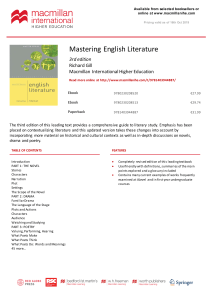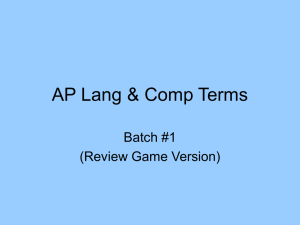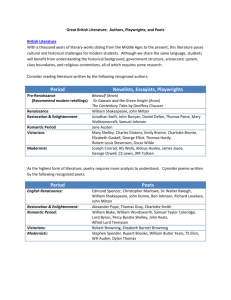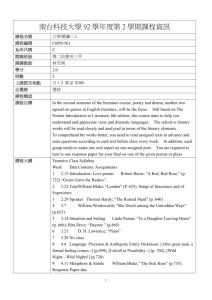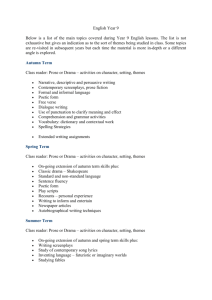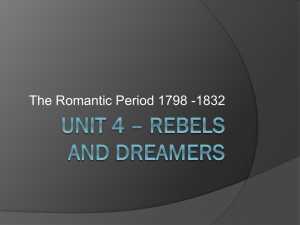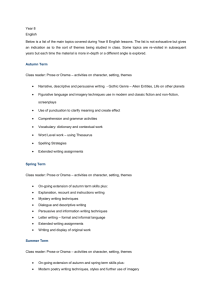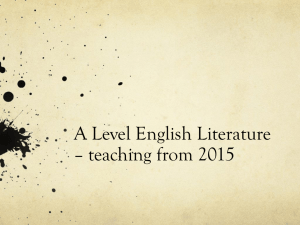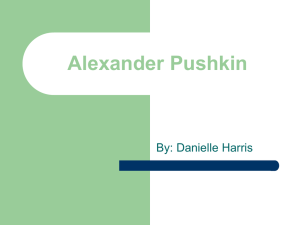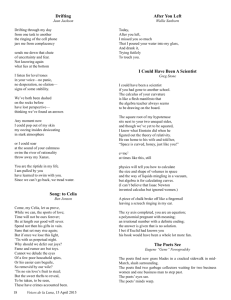prose feudal
advertisement
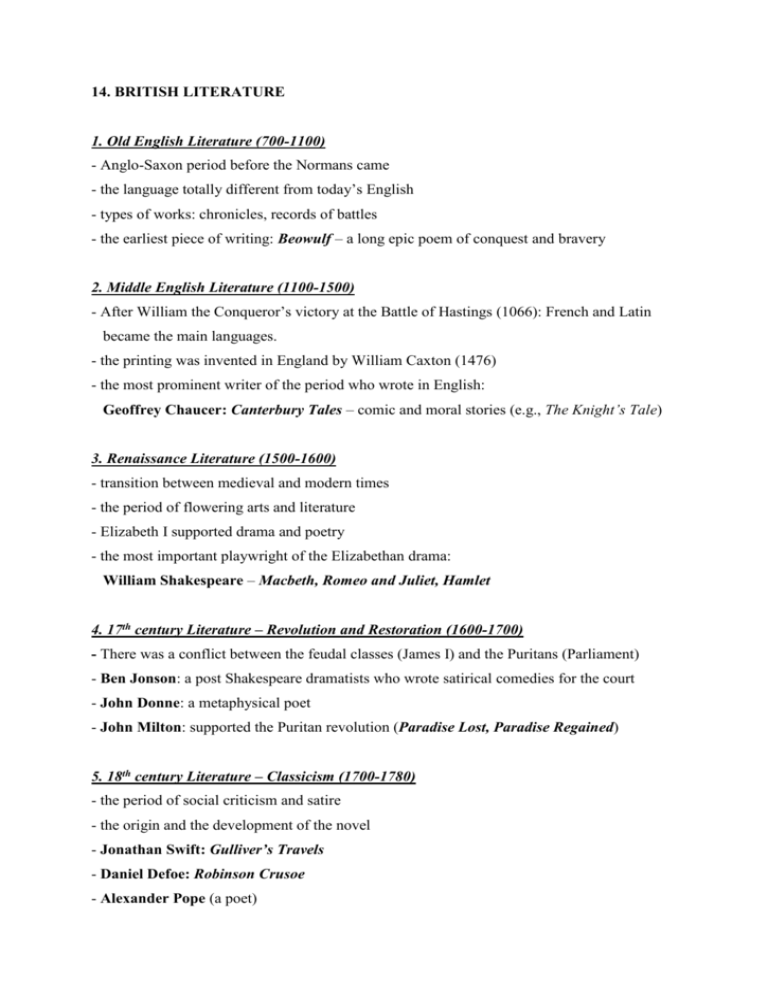
14. BRITISH LITERATURE 1. Old English Literature (700-1100) - Anglo-Saxon period before the Normans came - the language totally different from today’s English - types of works: chronicles, records of battles - the earliest piece of writing: Beowulf – a long epic poem of conquest and bravery 2. Middle English Literature (1100-1500) - After William the Conqueror’s victory at the Battle of Hastings (1066): French and Latin became the main languages. - the printing was invented in England by William Caxton (1476) - the most prominent writer of the period who wrote in English: Geoffrey Chaucer: Canterbury Tales – comic and moral stories (e.g., The Knight’s Tale) 3. Renaissance Literature (1500-1600) - transition between medieval and modern times - the period of flowering arts and literature - Elizabeth I supported drama and poetry - the most important playwright of the Elizabethan drama: William Shakespeare – Macbeth, Romeo and Juliet, Hamlet 4. 17th century Literature – Revolution and Restoration (1600-1700) - There was a conflict between the feudal classes (James I) and the Puritans (Parliament) - Ben Jonson: a post Shakespeare dramatists who wrote satirical comedies for the court - John Donne: a metaphysical poet - John Milton: supported the Puritan revolution (Paradise Lost, Paradise Regained) 5. 18th century Literature – Classicism (1700-1780) - the period of social criticism and satire - the origin and the development of the novel - Jonathan Swift: Gulliver’s Travels - Daniel Defoe: Robinson Crusoe - Alexander Pope (a poet) 6. Romanticism (1780-1832) - Romantics looked for beauty in man and expressed feelings and emotions as a contrast to the Industrial Revolution - The Lake Poets: William Wordsworth, Samuel Taylor Coleridge - other poets of the period: Lord George Gordon Byron, Percy Bysshe Shelley, John Keats - Romantic prose writers: Walter Scott: Ivanhoe, Jane Austen: Pride and Prejudice 7. Victorian Literature (1832-1901) - critical realism and social novel emerged - Charles Dickens: wrote about the lowest classes, criticized the rich people’s superiority – Oliver Twist, Great Expectations, David Copperfield - William M. Thackeray – Vanity Fair, Charlotte Bronte, Emily Bronte - Oscar Wilde: The Picture of Dorian Gray, The Importance of Being Earnest - Robert Lewis Stevenson: Treasure Island, Dr. Jekyll and Mr. Hyde (neo-romantic) 8. 20th century Literature (1900-now) novelists: - George Orwell: 1984, Animal Farm (allegory novels criticizing totalitarian society) - Agatha Christie: Ten Little Niggers (detective stories) - James Joyce: Ulysses (experimental prose) dramatists: - G. B. Shaw: Pygmalion - Samuel Beckett: Waiting for Godot (absurd drama) poets: - W.B. Yeats, Dylan Thomas
